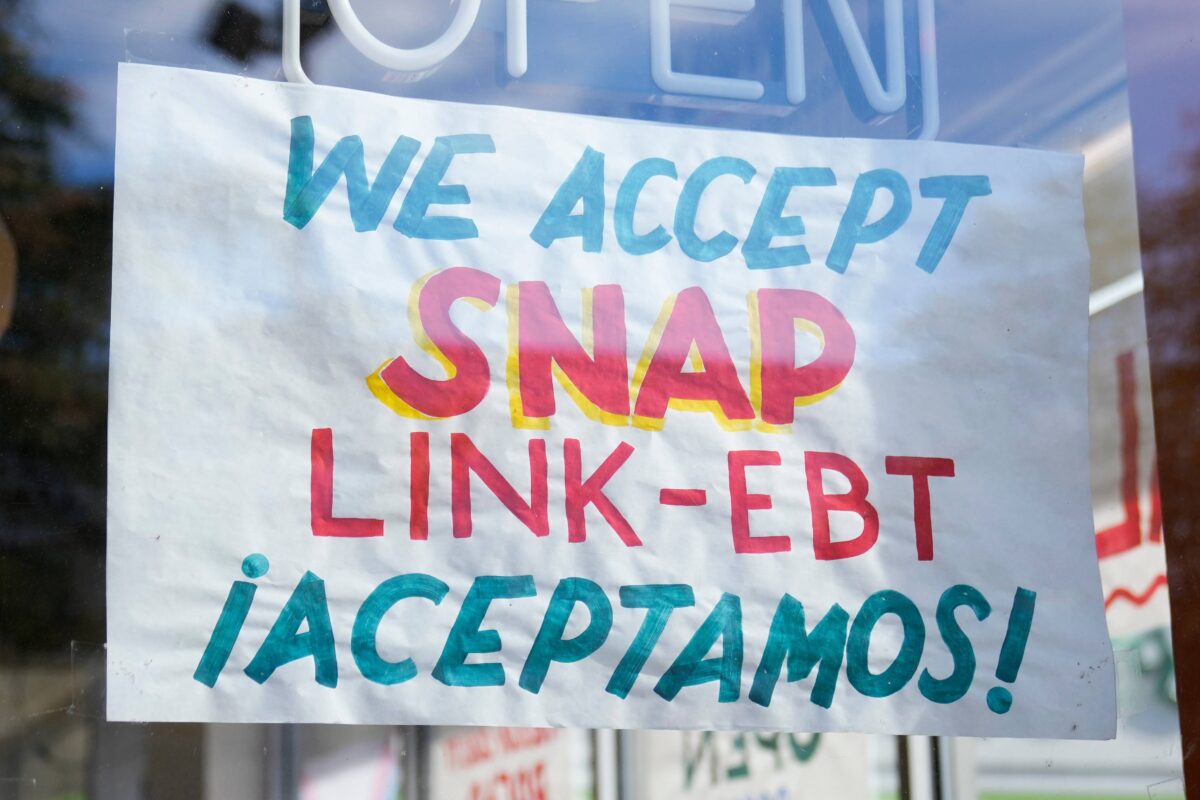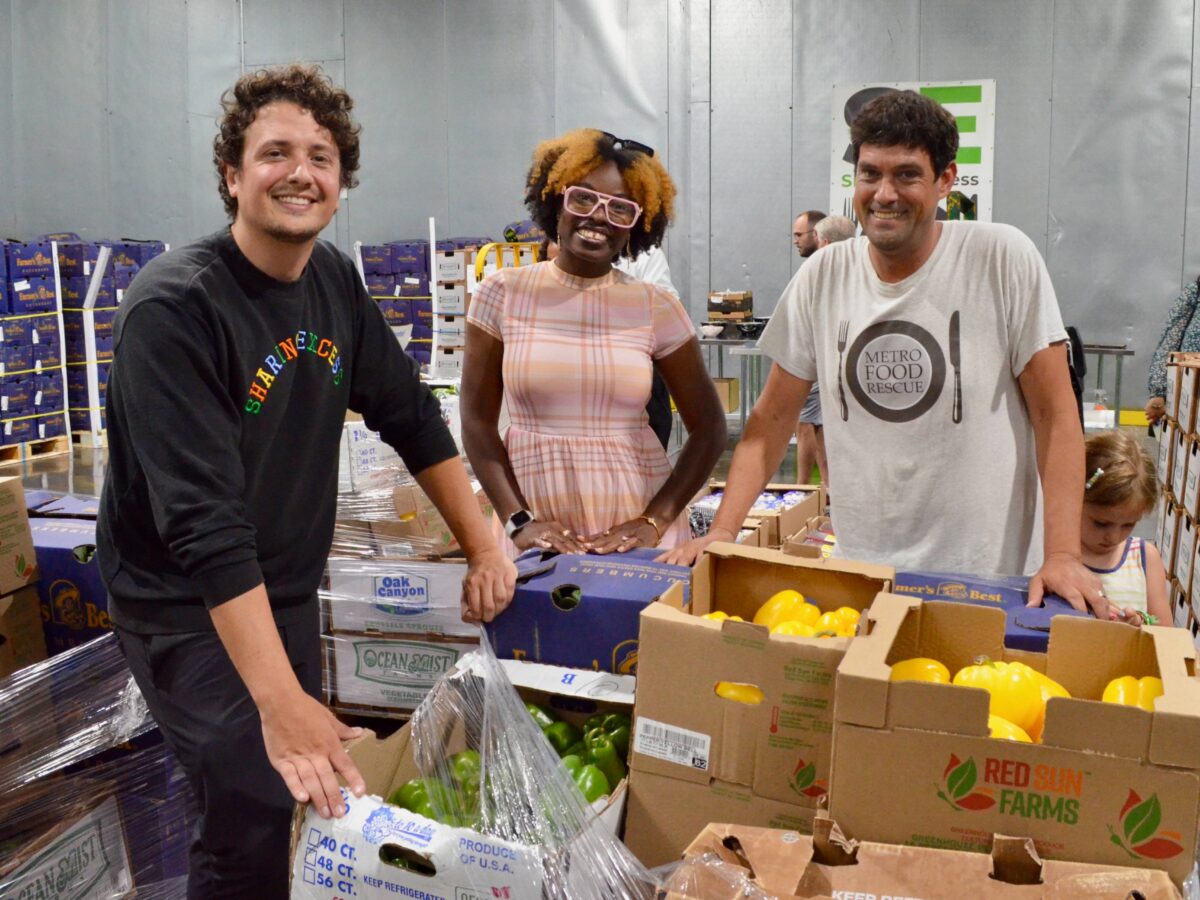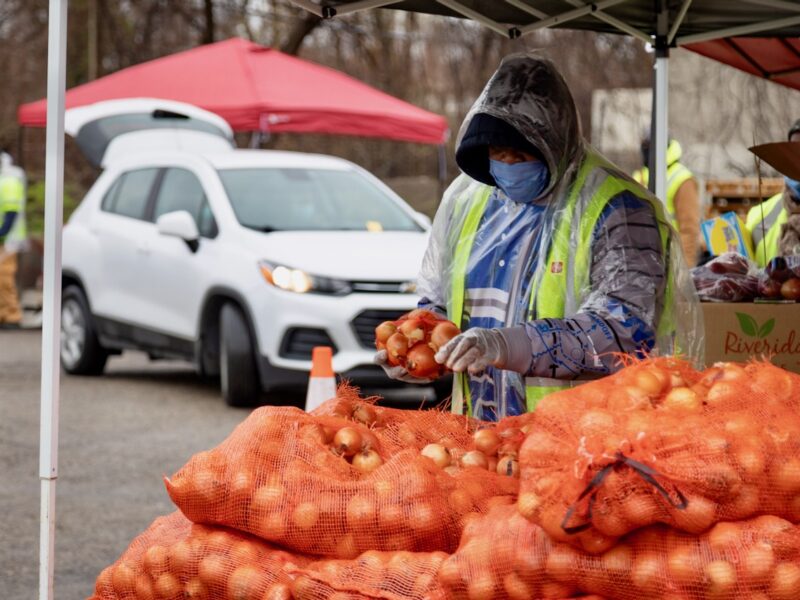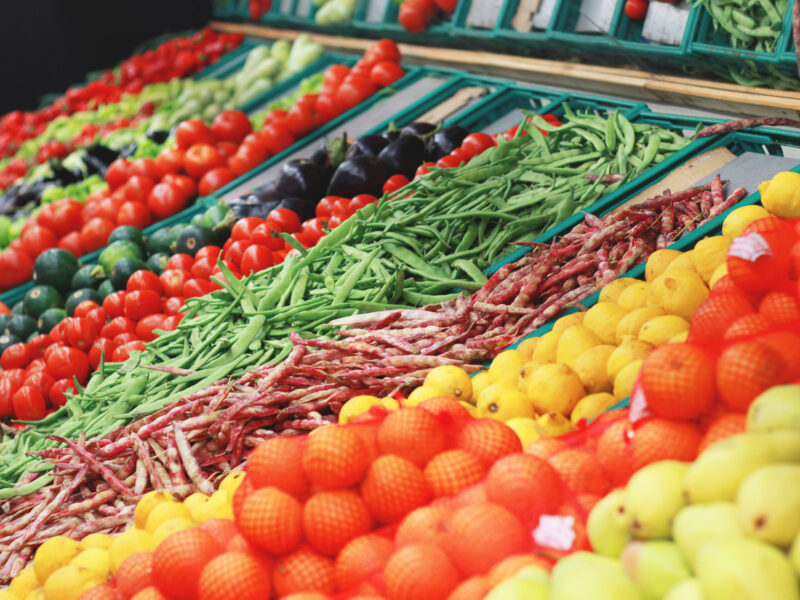Overview:
- SNAP is regarded as the largest anti-hunger program in the country.
- In Michigan, roughly 13% of households receive the benefits.
- Most people in the program are children, older adults and people with disabilities.
By NUSHRAT RAHMAN and TODD SPANGLER
Detroit Free Press and BridgeDetroit
About 1.4 million Michiganders could see their food assistance benefits cut off in November if the federal government shutdown continues.
The U.S. Department of Agriculture has informed Michigan and other states it intends to pause food assistance payments under the Supplemental Nutrition Assistance Program, or SNAP, after Nov. 1.
Here’s what to know:
What is SNAP?
SNAP, formerly known as food stamps, is a federal program that provides benefits to low-income families to help afford food. The program is regarded as the largest anti-hunger program in the country. As of May 2025, SNAP had nearly 42 million participants across the country. In Michigan, roughly 13% of households receive the benefits. Most people in the program are children, older adults and people with disabilities.
More than a third of SNAP households in Michigan have older adults while nearly half include children. According to MDHHS, 492,225 children benefit from the food assistance. In the 2024 fiscal year, the average Michigan household receiving SNAP benefits got about $335 a month, which breaks down to $173 per person a month, or $5.68 for each person a day. On the business front, more than 9,700 retailers accept SNAP, allowing them to redeem more than $3.6 billion in 2023 alone.
Eligibility for SNAP benefits is based on income, expenses and assets and household size. The benefits are administered by the federal government, but states determine eligibility and issue benefits. The food assistance benefits are provided on electronic benefit transfer, or EBT, cards that people can use to buy food at grocery stores and other retailers.
Why are SNAP benefits pausing?
The state received word from the federal government that there may be a delay in SNAP benefits next month because of the federal government’s shutdown, nearing a month if nothing changes.
The federal government has been shut down since funding lapsed at midnight on Oct. 1. Republicans have said they want a short-term funding agreement; Democrats say they want Congress to extend health care subsidies, set to expire Dec. 31, for plans under the Affordable Care Act. Without that extension, premiums for those plans will increase.
When will benefits stop and for how long?
MDHHS said in an Oct. 23 news release that the federal government directed the state department to “hold November SNAP issuance and ongoing benefits until further notice.” A banner on the USDA’s website reads: “At this time, there will be no benefits issued November 01.”
In an FAQ about the pause, MDHHS said that the delay is only expected to hit November benefits and that the department is monitoring the situation.
What about current benefits?
People can still use existing SNAP benefits on EBT cards from prior months, according to MDHHS.
What will happen to November benefits if the shutdown ends?
In its FAQ, the state health and human services department said once the federal government “notifies MDHHS that we are legally allowed to release November SNAP benefits, they will be loaded onto” recipients’ EBT cards.
Is Michigan still processing SNAP redeterminations?
Yes, MDHHS said on its website that its specialists are continuing to process redeterminations and case changes.
Isn’t there a contingency fund to pay for SNAP?
There is funding that has been allocated through federal appropriations bills in previous years that is believed to total about $6 billion. Democrats and their allies say that money could be used — and may be legally required to be used — to cover SNAP benefits during a lapse. That $6 billion would cover less than a month’s worth of benefits. But the USDA says just the opposite, that it legally can only use those funds to supplement benefits when demand outstrips funding with a federal appropriation is in place. Since the most recent appropriation bill lapsed Oct. 1 — hence the shutdown — USDA says it can’t use the money for that purpose. The agency also says that when the government reopens, it can’t reimburse the state if it pays for SNAP out of its own funds (though if Congress gave the USDA money and instructed it to reimburse states, it likely would).
How can people get help?
Food pantries: To find area food pantries and other resources, go to www.fbcmich.org/food-bank-network; pantrynet.org; www.forgottenharvest.org/find-food, or call the Michigan 211 line.
Doubling produce purchases:The Fair Food Network’s Double Up Food Bucks program, which matches purchases of fruits and vegetables using food assistance benefits up to $20 a day, has lifted the cap amid the looming pause of a federal program. Previously, shoppers could buy fresh fruits and vegetables from participating locations, up to $20 daily, and get matched dollar for dollar to double their purchasing power. Now, the match limit is unlimited. The Fair Food Network has also lifted a 90-day limit for shoppers to use their Double Up Food Bucks meaning there’s no expiration. Additionally, shoppers can now use their Double Up Bucks to buy frozen fruits and vegetables without added sugar, salt and oil. For more information about the Double Up Food Bucks program, go to doubleupfoodbucks.org. Call the program’s hotline at 866-586-2796 (9 a.m. to 5 p.m., Monday to Friday) for questions. Find a participating location at DoubleUpFoodBucks.org/find-a-location.
Have questions about SNAP benefits? Reach out.
Do you have questions about the looming pause in SNAP benefits? If so, email Nushrat Rahman at nrahman@freepress.com. Reporters will try and get answers and update this story.
Contact reporter Nushrat Rahman at nrahman@freepress.com.
MORE FROM PLANET DETROIT
Detroit food rescue partnership kicks off with 617,000 pounds of produce in 2 months
Sharing Excess, a Philadelphia-based organization that redistributes surplus food, and West Bloomfield Township-based Metro Food Rescue are collaborating to rescue up to an estimated 5 million pounds of fruits and vegetables annually for people in need. The two nonprofits headquartered in a Delray warehouse where they will sort and repack surplus produce rescued from vendors…
USDA cuts rattle Detroit’s ‘resilient’ food pantries
In Detroit, a food distribution event at Pilgrim Baptist Church has been a lifeline for hundreds of families for over a decade. Recent cancellations of $4.3 million in state food bank orders due to USDA spending reshuffles have cast uncertainty over its future.
How Trump’s tariffs are set to raise Michigan grocery prices
Trump’s tariffs on imports could lead to a 2.8% increase in food prices, disproportionately impacting low-income households and complicating decision-making for food companies and farmers.





